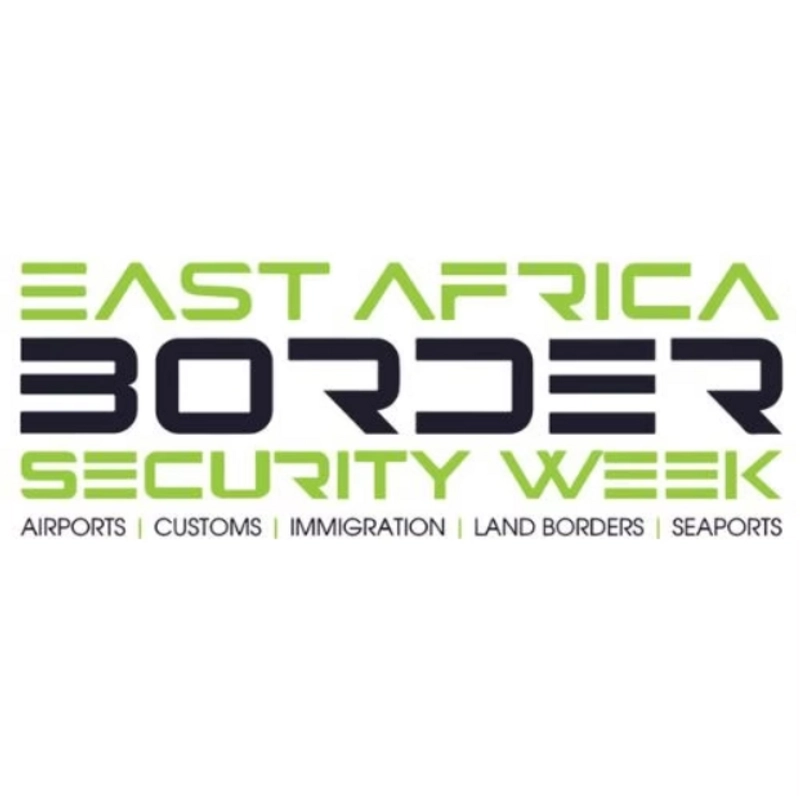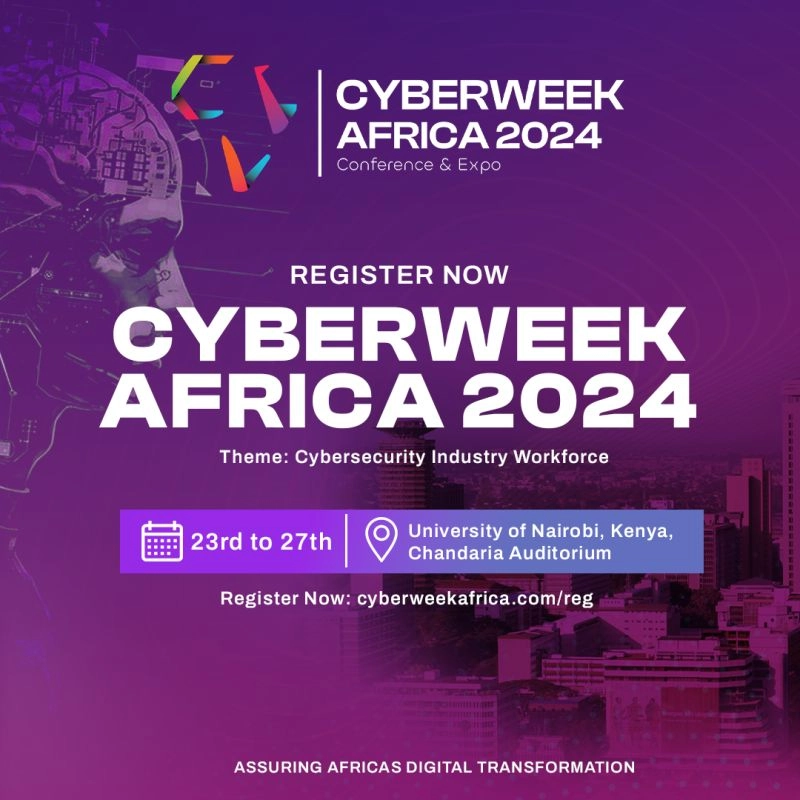Safety Equipment Eventos en Kenya


East Africa Border Security Week
East Africa Border Security Week: Building Safer Borders Through Regional Collaboration
In an increasingly interconnected world, the challenges of maintaining secure and well-managed borders are more complex than ever. East Africa Border Security Week held in Nairobi, Kenya stands as a critical platform where policy-makers, law enforcement leaders, and security professionals converge to share insights, build partnerships, and explore solutions that respond to the region’s evolving border threats.
As cross-border threats such as smuggling, human trafficking, terrorism, and cyber-infiltration continue to grow, the need for comprehensive, multi-agency cooperation has never been more urgent. This event isn’t just about technology it's about aligning people, processes, and policies to protect communities and economies across East Africa. The week is designed with purpose: to initiate regional strategies, spark innovation, and drive forward-looking change.
A Regional Response to Border Security Challenges
Borders, both visible and invisible, shape the security landscape of East Africa. The region faces unique geographical, economic, and political realities that require nuanced approaches to securing land, air, and sea entry points. From busy international airports and expansive land crossings to vulnerable maritime zones, each environment presents a distinct set of challenges.
East Africa Border Security Week acknowledges these differences. It is not a one-size-fits-all discussion but a tailored event that aims to serve the needs of all three major border environments by bringing together senior-level executives and ground-level operatives alike.
The event features a blend of interactive panels, operational workshops, and closed-door sessions where attendees are encouraged to share success stories, operational hurdles, and policy innovations. Most importantly, this is where future strategies are shaped through honest conversation and regional solidarity.
What Makes This Event Different
Unlike many global security events that remain theoretical or commercially driven, East Africa Border Security Week is grounded in the region's real-world issues. It focuses on practical outcomes and regional ownership of security frameworks.
The structure of the event fosters meaningful engagement:
High-Level Panels: Senior government officials, ministers, and security chiefs offer insights on national and regional policy frameworks.
Workshops & Breakout Sessions: These allow mid-level officers and tech implementers to dive into operational details, case studies, and tool demonstrations.
Technology Demonstrations: Live showcases of smart border control systems and data-driven monitoring tools.
Networking Opportunities: Informal gatherings where ideas turn into collaborations.
Participants walk away with not just theory, but tangible tools, contacts, and plans to implement when they return home.
Themes That Define the Week
East Africa Border Security Week doesn’t focus on a single issue — it is an expansive dialogue that spans multiple sectors and threats. This year’s discussions are built around several core themes:
Key Focus Areas:
Smart Border Control Technologies: How East Africa can adopt and localize biometric systems, AI-powered surveillance, and real-time data exchange.
Interagency Collaboration: Enhancing cooperation between military, police, customs, and immigration departments across borders.
Capacity Building: Upskilling frontline personnel with modern tools and practices.
Maritime and Coastal Security: Addressing growing concerns around illegal fishing, trafficking, and piracy.
Air Border Management: Ensuring airports are equipped to detect, deter, and respond to evolving threats.
These topics aren’t discussed in isolation. Instead, they are woven into a holistic narrative of security integration where technology, policy, and personnel work in harmony.
Who Attends and Why It Matters
The strength of East Africa Border Security Week lies in its participants. The event brings together an intentionally diverse mix of decision-makers and practitioners, ensuring that conversations remain both strategic and grounded.
Among the key attendees are:
Government Ministers & Policy Directors
Border Patrol & Immigration Authorities
Customs Officials and Law Enforcement Leaders
Technology Providers & Innovators
Academics and Regional Analysts
This melting pot of perspectives allows the event to go beyond information sharing. It becomes a site of knowledge co-creation, where African-led solutions are prioritized and international best practices are adapted for regional use.
Why Smart Border Solutions Are More Than a Trend
One of the most anticipated aspects of the week is the spotlight on smart border control technologies not as futuristic concepts, but as real-time solutions already in motion. For East Africa, where border crossings can span hundreds of kilometers in remote areas, leveraging technology is not optional it's essential.
Innovative tools such as biometric verification, remote surveillance drones, data-sharing networks, and mobile checkpoints are already redefining what is possible. When tailored correctly, these tools can:
Reduce human error in document checks
Detect irregular crossings and unusual patterns
Prevent illegal trade and improve tax collection
Enhance traveler experience while ensuring safety
The event doesn’t present technology as a magic fix, but rather as one piece of a complex security puzzle. Discussions focus on integration how to use tools in ways that are cost-effective, culturally relevant, and operationally feasible.
Toward a United Regional Strategy
Perhaps the most important outcome of East Africa Border Security Week is the push for a united regional approach to border management. In a world where threats ignore national boundaries, fragmented efforts no longer suffice. Cooperation is not just recommended; it’s required.
Through this event, countries in the region have a unique chance to align their efforts, draft shared protocols, and explore joint training programs. This collaborative spirit doesn’t erase national sovereignty it reinforces it by creating a more resilient, prepared, and interconnected security environment.
More Than Just a Conference
In conclusion, East Africa Border Security Week is not simply an annual gathering. It is a strategic intervention a deliberate, informed, and proactive step toward securing the region's future.
By placing emphasis on collaboration, context-aware technology, and human-centered policy, the event invites all players in the field to contribute to a safer, more integrated East Africa. It recognizes that true border security isn’t built in silos it’s co-created at events like this, through dialogue, trust, and shared vision.
For anyone invested in the future of border management, regional stability, or public safety, East Africa Border Security Week is more than a calendar event it’s a turning point.


CyberWeek Africa
CyberWeek Africa: Securing Africa’s Digital Sovereignty through Innovation and Policy
As cyber threats continue to grow in scale and sophistication, CyberWeek Africa emerges once again as the continent’s premier platform for digital security, innovation, and strategic policymaking. Hosted at the prestigious Kenya School of Government in Lower Kabete, Nairobi, this landmark event has become the focal point for Africa’s commitment to building a resilient, inclusive, and innovation-led digital ecosystem.
With thousands of cybersecurity professionals, government leaders, AI researchers, and defence strategists in attendance, CyberWeek Africa is more than just a tech event—it is where Africa’s digital sovereignty is secured, discussed, and put into action. Now entering its fourth year, the forum continues to shape national and continental strategies, bridging the gap between policy, technology, and battlefield readiness.
A Growing Movement for African Cyber Resilience
Since its inception, CyberWeek Africa has become a critical driver of continental collaboration. The event has brought together over 5,000 delegates from more than 90 countries, including top-tier decision-makers from both public and private sectors. From regulators and cybersecurity professionals to defence experts and quantum computing pioneers, the event curates a dynamic environment of knowledge-sharing, networking, and real-world strategy development.
The event reflects Kenya's and Africa's wider ambitions to not only keep pace with global cyber developments, but to shape a distinct and sovereign digital future for the continent. With strategic focus areas including AI, quantum technology, digital ethics, and cyber warfare, the event ensures that Africa’s voice in global cybersecurity discourse is loud and clear.
2025 Theme: Compliance by Design
This year’s theme, “Compliance by Design,” sends a strong message: cybersecurity and data protection must not be afterthoughts. They must be built into systems, products, and governance structures from the very beginning.
The “Compliance by Design” approach focuses on:
Embedding privacy and security in early-stage tech development
Aligning with global regulatory frameworks like GDPR and Kenya’s Data Protection Act
Prioritizing transparency, accountability, and ethics in AI and digital transformation
Fostering digital trust between governments, enterprises, and citizens
Encouraging proactive, not reactive, cyber defence systems
Rather than treating regulation as a burden, CyberWeek Africa promotes compliance as a catalyst—a foundation for sustainable digital growth and international competitiveness.
What to Expect at CyberWeek Africa
CyberWeek Africa blends technical deep dives, strategic dialogue, and immersive workshops, creating a space where both national and organizational cyber agendas are developed.
Key features of the event include:
Expert Panels and Fireside Chats
With speakers ranging from government ministers to global CISOs, these sessions offer invaluable insights into real-world challenges and regulatory trends.
Live Simulations and Threat Response Exercises
Military-grade cybersecurity drills and AI-integrated cyber warfare simulations showcase emerging tools in action.
Technology Exhibition
Cutting-edge products and solutions in AI, quantum security, digital identity, threat detection, and cloud security on display.
Startup Pitch Zone
A dedicated space for African innovators to present cybersecurity, compliance, and AI-driven startups to global investors.
Policy Roundtables and Diplomacy Forums
Closed-door sessions where regulators, diplomats, and strategic advisors shape cross-border data and cyber agreements.
This diversity makes CyberWeek Africa a truly multidisciplinary space, ideal for both deep technical learning and high-level policy strategy.
Why CyberWeek Africa Matters for the Continent
CyberWeek Africa is more than just an annual gathering it’s a movement to assert Africa’s digital sovereignty. In a time when external influence in digital infrastructure is a growing concern, this event puts local governance, innovation, and capacity-building at the forefront.
The event addresses several key goals:
Strengthening national cybersecurity frameworks
Promoting public-private partnerships for cyber defence and digital innovation
Building homegrown expertise in AI, machine learning, and quantum computing
Facilitating cross-border regulatory harmonization for seamless data flows
Encouraging ethical digital transformation rooted in African values and realities
Through these pillars, CyberWeek Africa helps shape a secure, sovereign, and inclusive digital future, positioning Africa not just as a consumer of global cybersecurity tools—but as a leader in cybersecurity strategy and innovation.
Who Attends CyberWeek Africa?
The strength of CyberWeek Africa lies in the diversity and caliber of its participants. Attendees span across sectors, disciplines, and borders each bringing critical expertise to the table.
The attendee profile includes:
Government policymakers and regulators
Cybersecurity professionals and researchers
Military cyber units and defence strategists
CIOs and CISOs from critical infrastructure sectors
Academics and students in tech, law, and policy
Tech entrepreneurs and African startup founders
AI developers and quantum computing experts
Diplomats and international cooperation specialists
This diversity ensures that the event remains holistic, practical, and action-driven, with multiple perspectives enriching the conversation.
CyberWeek’s Lasting Impact on Africa’s Digital Agenda
Each edition of CyberWeek Africa doesn’t end with applause it ends with agreements, collaborations, and blueprints for future action. The forum plays a pivotal role in shaping:
National cybersecurity strategies across East, West, and Southern Africa
Digital identity frameworks and critical infrastructure protections
AI governance guidelines that balance innovation with ethics
Regulatory compliance training for institutions and SMEs
Regional alliances for cyber threat intelligence and response
Moreover, the forum has supported the development of cybersecurity curricula, incubation hubs for digital startups, and bilateral agreements for secure digital trade between African states.
In an era of fast-paced digital change, CyberWeek Africa is not just timely it is transformative. By uniting technology, governance, and innovation under one roof, the event empowers African nations to take charge of their digital destinies. With the 2025 theme of “Compliance by Design,” the focus is clear: build systems that are not only powerful and scalable but secure, ethical, and sustainable from the start.
For professionals in cybersecurity, policy, tech development, defence, or digital governance, CyberWeek Africa is the must-attend event of the year a space where challenges are met with collaboration, and ideas are turned into actionable change.